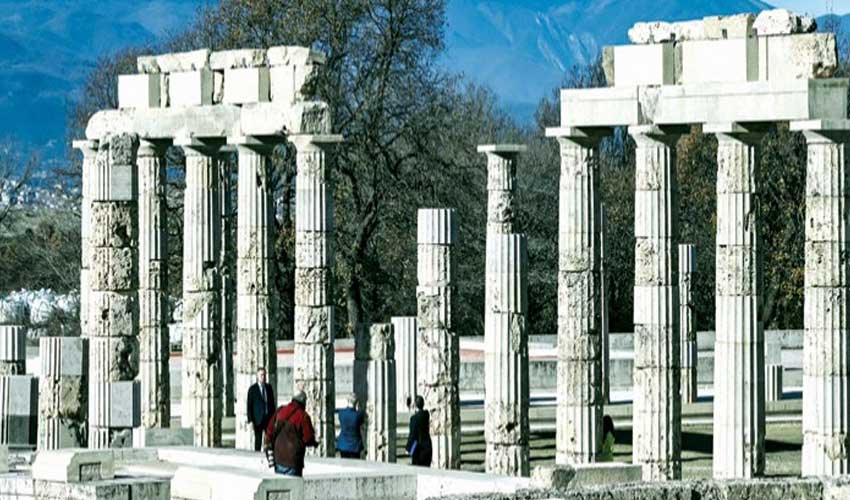After a 16-year, 20 million euro renovation project aimed at restoring its former glory, the ancient palace where Alexander the Great was crowned King of Macedonia will reopen to the public on Sunday.
Greek Prime Minister Kyriakos Mitsotakis, speaking at a ceremony on Friday, referred to the Palace of Aigai as a "monument of global importance." The 4th century BC site, spanning 15,000 square metres, was one of the most significant in classical Greece, comparable to the Parthenon in Athens.
Aigai served as the capital of the Macedonian kingdom, the predominant military power of its time, and archaeologists identify the palace as the kingdom's spiritual center. Constructed by Philip II, the father of Alexander the Great, the nearby tombs of Philip and other Macedonian kings contribute to the historical significance of the site.
In 336 BC, following the assassination of his father, Alexander the Great was crowned at the palace before embarking on a military campaign that led to the creation of an empire stretching into modern-day India. Mitsotakis emphasised the cultural and national importance of the palace, affirming the Greek identity of Macedonia over the centuries.
The site comprises the royal palace, a colonnade surrounding it, and the agora, where ancient Macedonians debated important matters. The courtyard, with an 8,000-person capacity, witnessed Alexander's proclamation as king.
Destroyed by the Romans in 148 BC, the palace underwent excavations starting in 1865 and continuing into the 20th century. The restoration project, initiated in 2007 with European Union support, has brought the ancient landmark back to its former glory.
Situated near the modern Greek village of Vergina, the palace and its adjacent tombs are recognized as a UNESCO World Heritage Site. Greece's increased investment in its ancient sites has become a crucial source of tourist revenue, and the restoration of historical landmarks contributes to the country's cultural preservation efforts.



























